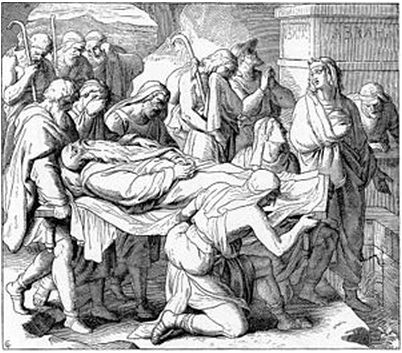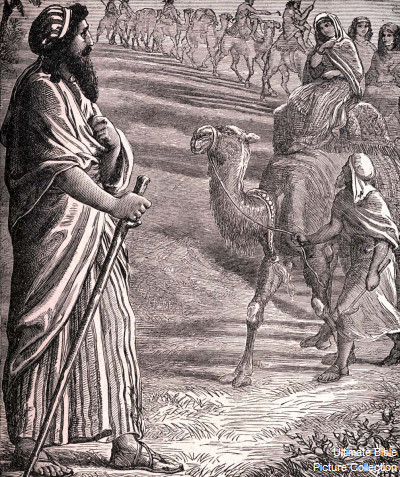9 Besides being wise, the Preacher also taught the people knowledge, weighing and studying and arranging many proverbs with great care. 10 The Preacher sought to find words of delight, and uprightly he wrote words of truth.
11 The words of the wise are like goads, and like nails firmly fixed are the collected sayings; they are given by one Shepherd. 12 My son, beware of anything beyond these. Of making many books there is no end, and much study is a weariness of the flesh.
13 The end of the matter; all has been heard. Fear God and keep his commandments, for this is the whole duty of man. 14 For God will bring every deed into judgment, with every secret thing, whether good or evil. – Ecclesiastes 12:9-14 ESV
As Solomon begins to wrap up his book, he provides his credentials as proof of the veracity of his words. Referring to himself in the third person, he restates his well-known reputation for wisdom, a gift given to him by God. But he claims to have put a great deal of effort and energy into enhancing that wisdom with further insight and knowledge through the use of diligent study and research. Solomon had spent a lifetime collecting the wise sayings of the sages, compiling many of them in the book of Proverbs. But he had not been content to simply collect and edit these sayings, producing them in written form for others to read.
He listened carefully to many proverbs, studying and classifying them. – Ecclesiastes 12:9 NLT
Solomon “sought to find just the right words to express truths clearly” (Ecclesiastes 12:9 NLT). He had tested these truths, taking the time and energy to determine their reliability and truthfulness. Like a metallurgist testing the quality of gold to assess its true value, Solomon had proven the accuracy and soundness of each proverb before passing them on to the people. His goal had been to find teachings that would prove beneficial to life.
Solomon compares proverbs or wise sayings to a goad, a sharp stick that was used to prod animals along. Like a goad, a proverb is a simple tool that can make a powerful impact. Like a sharp stick to the rump of a wayward cow, a proverb can course-correct a person who is straying from the truth and redirect their steps.
He also compares proverbs to firmly fixed nails that provide much-needed stability to life. Proverbs are meant to keep things the way God intended them to be. They hold things in place, providing a sense of security and stability to life. Someone who lacks these time-proven truths or maxims is left to learn the lessons of life the hard way – through painful trial and error. And one of the reasons Solomon seems to have written this particular book was to pass on to those under his care the many life lessons he had learned.
As stated before, Solomon wrote this book near the end of his life, and he had a great deal of wisdom, gleaned from personal experience, that he sought to impart. In one of his proverbs, Solomon expressed this same desire to pass on his acquired wisdom to others.
My children, listen when your father corrects you.
Pay attention and learn good judgment,
for I am giving you good guidance.
Don’t turn away from my instructions.
For I, too, was once my father’s son,
tenderly loved as my mother’s only child. – Proverbs 4:1-3 NLT
My child, listen to me and do as I say,
and you will have a long, good life.
I will teach you wisdom’s ways
and lead you in straight paths. – Proverbs 4:10-11 NLT
And Solomon firmly believed that the proverbs he had collected had been given to him by God, making them divine instructions, not simply the words of men. That’s why he refers to them as having come from one Shepherd. While their human authors were many in number, the truths these proverbs contained came from God alone. He is the author of all truth, and that’s why Solomon warned, “My son, beware of anything beyond these” (Ecclesiastes 12:12 ESV).
There are countless books available and an individual could spend a lifetime searching and studying the written wisdom of men. But according to Solomon, it would prove to be a waste of time. And he knew that from experience because he had done it. He had come to recognize that it was all vanity, like chasing after the wind. And the apostle Paul would have fully agreed with Solomon. In fact, he described the wisdom of men in less-than-flattering terms: “For the wisdom of this world is foolishness to God” (1 Corinthians 3:19 NLT).
Earlier in that same letter, Paul asked and answered his own question regarding man’s so-called wisdom. “So where does this leave the philosophers, the scholars, and the world’s brilliant debaters? God has made the wisdom of this world look foolish” (1 Corinthians 1:20 NLT). It’s no contest. God’s wisdom trumps human wisdom every time.
As Solomon prepares to wrap up his book and his life, he can’t help but come back to the one truth that held all his thoughts together. It is the one point of clarity in a long life filled with perplexities and incongruities. He refers to it as “the end of the matter.” It’s his summary or synopsis of life.
Fear God and keep his commandments, for this is the whole duty of man. – Ecclesiastes 12:13 ESV
Now, what’s missing in Solomon’s summary is an understanding and awareness of God’s future plans for his life. Like many in his day, Solomon had no clear theology concerning the afterlife. It was all a mystery to him. As far as he could tell, what existed beyond the grave was nothing more than a black hole.
“Life after death was as enigmatic to him as the unequal distribution of justice. His emphasis was on this life (‘under the sun’) and its opportunities for service and enjoyment; he thought life after death offered no such opportunities.” – Donald R. Glenn, “Ecclesiastes.” In The Bible Knowledge Commentary: Old Testament
So, while Solomon’s admonition to fear God and keep His commandments sounds like solid, biblical counsel to us, we have to keep in mind that he is placing all his emphasis on the here-and-now. He knows that God is sovereign over all. He realizes that God controls all things and is the distributor of all good gifts. He can give and He can take away. From Solomon’s limited, earth-bound perspective, it made sense to keep God happy by fearing and obeying Him. That way, you could hope to enjoy in this life some of the blessings that only He can bestow. And when Solomon speaks of God’s judgment, he seems to have in mind a judgment that takes place in this life. His rewards or punishments are based on thoughts and behaviors committed in this life.
Solomon remains fixated on present, not future rewards. He was expecting all of God’s blessings to show up in this life, not the one to come. Because as far as Solomon could tell, there was no guarantee of life after death.
But as believers in Jesus Christ, we have been given additional insight into God’s redemptive plan. We have the entirety of God’s Word to guide and instruct us. We know that there is an afterlife because Jesus promised it. Paul wrote about it. The New Testament goes out of its way to describe it. Yes, there is a judgment, but its rewards are not temporal in nature. They are eternal.
In his first letter, the apostle John told his readers: “I have written this to you who believe in the name of the Son of God, so that you may know you have eternal life” (1 John 5:13 NLT). Jesus promised: “I tell you the truth, those who listen to my message and believe in God who sent me have eternal life. They will never be condemned for their sins, but they have already passed from death into life” (John 5:24 NLT).
There is much we can learn from Solomon. But we have to take all that he wrote and combine it with what we have come to know since the incarnation, death, and resurrection of Jesus. Solomon lived on the other side of the cross but we have been provided with the end of the story, something Solomon did not have. So, when he said, this is “the end of the matter; all has been heard,” Solomon was only partially right. There was more to come. As a matter of fact, the Savior of the world was to come. And it was His arrival on earth in human form, His sinless life, His sacrificial death, and bodily resurrection that removed all the vanity, meaningless, futility and frustration from life. This world, while a wonderful gift from God to be enjoyed, is not all there is. There is far more to come.
“Qoheleth’s intent in his writing is to pass judgment on man’s misguided endeavors at mastering life by pointing out its limits and mysteries. He would prefer that man replace such false and illusory hopes with a confidence based on the joy of creation as God’s gift.” – Robert K. Johnston, Confessions of a Workaholic: A Reappraisal of Qoheleth
But even more important than enjoying God’s gift of creation, is placing our faith and hope in God’s offer of new creation, new hope, new life, new joy, and the promise of a never-ending, frustration-free, sinless future with God.
Therefore, if anyone is in Christ, he is a new creation. The old has passed away; behold, the new has come. – 2 Corinthians 5:17 ESV
English Standard Version (ESV) The Holy Bible, English Standard Version. ESV® Permanent Text Edition® (2016). Copyright © 2001
New Living Translation (NLT) Holy Bible, New Living Translation, copyright © 1996, 2004, 2015 by Tyndale House Foundation. Used by permission of Tyndale House Publishers Inc., Carol Stream, Illinois 60188. All rights reserved.


